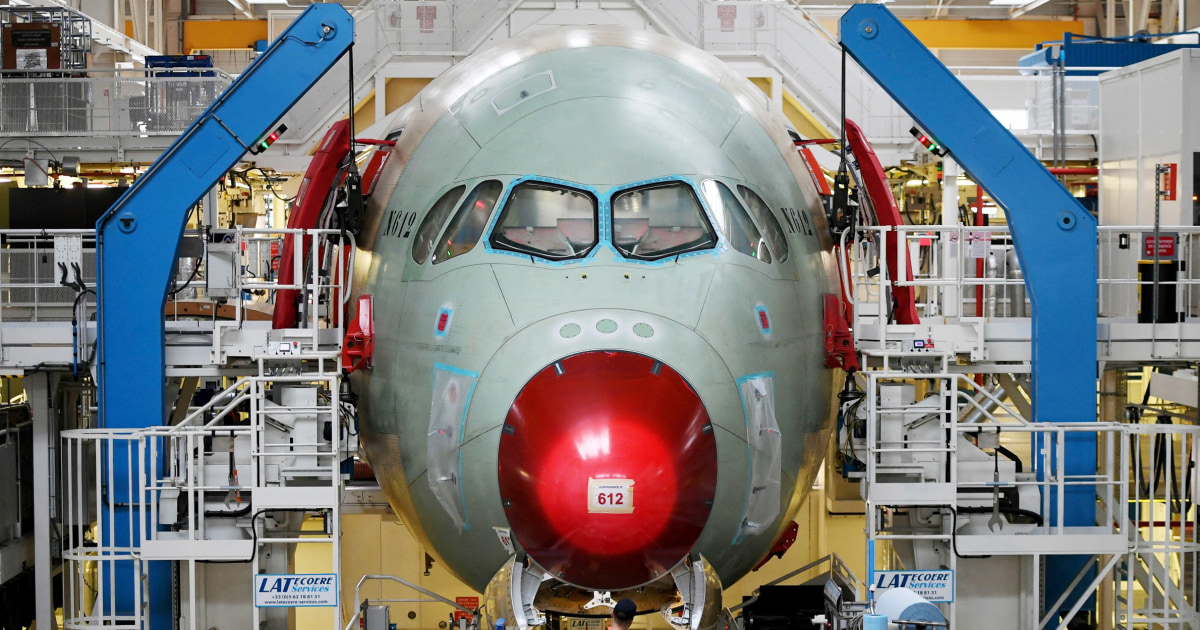Boeing and Airbus, the two biggest commercial airline makers, may have used titanium sold using fake documents, according to evidence from a supplier that has triggered a Federal Aviation Administration investigation.
The FAA said in a statement to NBC News on Friday morning it would look into allegations from Spirit Aerosystems that the two aviation giants used titanium in their planes that came with paperwork verifying its authenticity that could have been falsified.
The news adds to a troubled period for Boeing, which is the subject of ongoing federal investigations for alleged safety problems. But the news also brings its fierce rival, France-headquartered Airbus, into the wider scrutiny the aviation industry is facing.
Spirit Aerosystems, based in Wichita, Kansas, which raised the alarm on the titanium issue, said it acted fast to remove all the suspect titanium from the supply chain.
“This is about titanium that has entered the supply system via documents that have been counterfeited. When this was identified, all suspect parts were quarantined and removed from Spirit production,” the company said in a statement.
Spirit added that “more than 1,000 tests have been completed to confirm the mechanical and metallurgical properties of the affected material to ensure continued airworthiness.”
“Boeing reported a voluntary disclosure to the FAA regarding procurement of material through a distributor who may have falsified or provided incorrect records,” the FAA said in a statement confirming yet another investigation into Boeing.
“Boeing issued a bulletin outlining ways suppliers should remain alert to the potential of falsified records,” the statement added.
Airbus controls about 60% of the commercial airline market with Boeing taking the remaining 40% — the companies’ grip on the industry has been called a duopoly.
Boeing said in an emailed statement: “This industry-wide issue affects some shipments of titanium received by a limited set of suppliers, and tests performed to date have indicated that the correct titanium alloy was used.”
Boeing added that it was “removing any affected parts on airplanes prior to delivery. Our analysis shows the in-service fleet can continue to fly safely.”
Airbus released a statement saying the company “is aware of the situation.”
“Numerous tests have been performed on parts coming from the same source of supply,” the statement said. “They show that (aircraft) airworthiness remains intact. The safety and quality of our aircraft are our most important priorities and we are working in close collaboration with our supplier.
Earlier on Friday the FAA said it was investigating how a Boeing 737 Max jet became caught in a so-called “Dutch roll” incident while flying from Phoenix to Oakland last month.
Boeing’s tumultuous year began when a door panel blew off a 737 Max-9 mid-air in January.
The FAA is also investigating whether Boeing completed required inspections on its flagship 787 Dreamliner jets.

